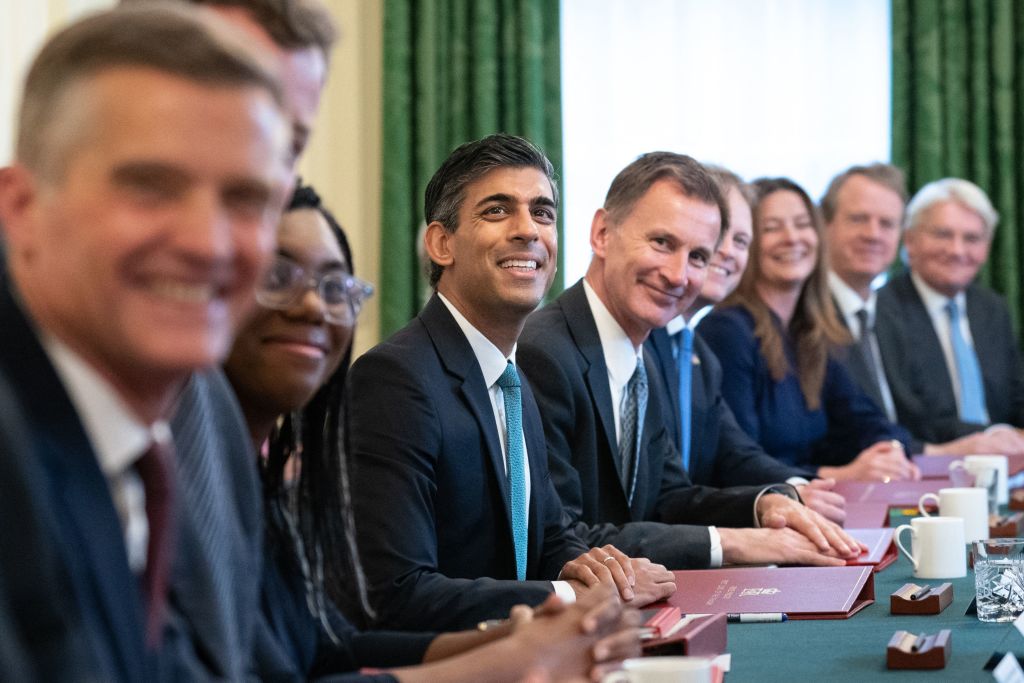The government’s transition on taxes has taken place at lightning speed. We’ve gone from chancellor Jeremy Hunt hinting at tax cuts yesterday morning on the BBC to Rishi Sunak confirming that not only are tax cuts coming this Wednesday, but they are now a major priority for the government, as laid out in five new promises made today.
Arguably the UK economy has been defying the doomsday predictions for a while now
But it’s not just the policy that’s changing. It’s the rhetoric too. Hunt has gone from insisting that tax cuts are ‘virtually impossible’ in September – not something to consider right now, he said in October – to ushering them in this November and embracing a new tone about the economy. Speaking at the CBI’s annual conference this afternoon, the Chancellor dropped the gloomy narrative about what debt interest payments were doing to the public finances, and insisted he was feeling upbeat instead.
‘I feel a lot more positive about the UK economy than I did a year ago when I came in’, he told an audience of business leaders. ‘The biggest reason is because we’ve managed to halve inflation…I hope now people can see we’re making progress on that. I’ll be focusing on growth’. And with the inflation rate well below its double-digit peak, he said: ‘We can start to shake off some of the defeatism and pessimism about the UK economy.’
Arguably the UK economy has been defying the doomsday predictions for a while now. The worst forecasts at the start of the year claimed the UK would be the only major economy to go into recession. Instead the UK has managed to avoid an economic contraction, and actually performed substantially better during the Covid recovery than previously thought.
But that doesn’t mean there’s a good story to tell about GDP, not least when there was provisionally reported zero growth between July and September this year. Hunt’s goal is to improve this figure substantially, and he’ll need to pull certain tax levers to do it. But some will be more effective than others: his focus on business investment, and to make ‘full expensing’ permanent, will be a step in the right direction. But the political pressure points remain on people’s take-home pay, which has been badly hit by frozen tax thresholds over the past few years. What we get on Wednesday will likely be a balance between the two, which must still take into account the government’s (now twice) pledged goal to reduce public sector net debt, for which new figures are out tomorrow morning.







Comments